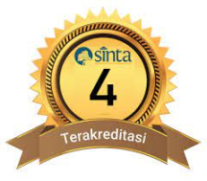Pengaruh penerapan LKS virtual laboratory dengan model pembelajaran cooperative type group investigation terhadap kompetensi belajar fisika siswa kelas X MIA SMA Adabiah Padang
Abstract
Full Text:
Download PDFReferences
Undang-Undang Republik Indonesia Nomor 20 Tahun 2003 tentang Sistem Pendidikan Nasional.
&[18] Peraturan Pemerintah Nomor 87 Tahun 2017 tentang Penguatan Pendidikan Karakter.
Siswanto, dkk. 2018. Modul Pelatihan Implementasi Kurikulum 2013 SMA Tahun 2018. Jakarta: Direktorat Pembinaan Sekolah Menengah Atas, Direktorat Jenderal Pendidikan Dasar dan Menengah Kementerian Pendidikan dan Kebudayaan.
Kemendikbud. 2015. Peraturan Menteri Pendidikan dan Kebudayaan Republik Indonesia Nomor 53 Tahun 2015 tentang Penilaian Hasil Belajar oleh Pendidik dan Satuan Pendidikan pada Pendidikan Dasar dan Pendidikan Menengah. Jakarta: Kemendikbud.
Prastowo, A. 2011. Panduan Aktif Membuat Bahan Ajar Inovatif. Yogyakarta: Diva Press.
,[19],[20] Hermansyah. 2015. Pengaruh Peng gunaan Laboratorium Virtual Terhadap Penguasaan Konsep dan Kemampuan Berpikir Kreatif Siswa pada Materi Getaran dan Gelombang. Pendidikan Fisika dan Teknologi, 97-98.
Al-Tabany, T. 2017. Mendesain Model Pembelajaran Inovatif, Progresif, dan Kontekstual. Jakarta: PT. Kharisma Putra Utama.
&[17] Slavin, R.E. 2009. Cooperative Learning: Teori, Reset dan Praktek. Bandung: Nusa Media.
Kurnia, Wahyu. Pengaruh Penerapan Virtual Lab Berbantuan LKPD Menggunakan Model Pembelajaran Kooperatif Tipe Group Investigation Terhadap Kompetensi Peserta Didik Kelas XI SMAN 5 Padang. Pillar of Physics Education, Vol. 10, Oktober 2017, 161-168.
Rafi, Ibnu, N., S. 2016. Penerapan Metode Pembelajaran Bamboo Dancing dalam Pembelajaran Keliling dan Luas Segiempat dan Segitiga untuk Meningkatkan Keterampilan 4C Siswa SMP Kelas VII. 101.
Masril, dkk. 2018. Lembar Kerja Siswa Berbasis Virtual Lab Fisika untuk SMA/MA dan SMK. Padang: Berkah Prima. ISBN: 978-602-5994-02-9.
Masril, H., Y. The Development of Virtual Laboratory Using ICT for Physics in Senior High School. Material Science and Engineering, 335, 1-8.
&[16] Sugiyono. 2012. Metode Penelitian Kuantitatif, Kualitatif, dan R&D. Bandung: Alfabeta.
Kemendikbud. 2017. Panduan Penilaian oleh Pendidik dan Satuan Pendidikan untuk Sekolah Menengah Atas. Jakarta: Direktorat Pembinaan SMA Ditjen Pendidikan Dasar dan Menengah.
Djamas, Djusmaini. 2015. Metodologi Penelitian Pendidikan Fisika. Padang: Universitas Negeri Padang.
DOI: http://dx.doi.org/10.24036/5108171074








